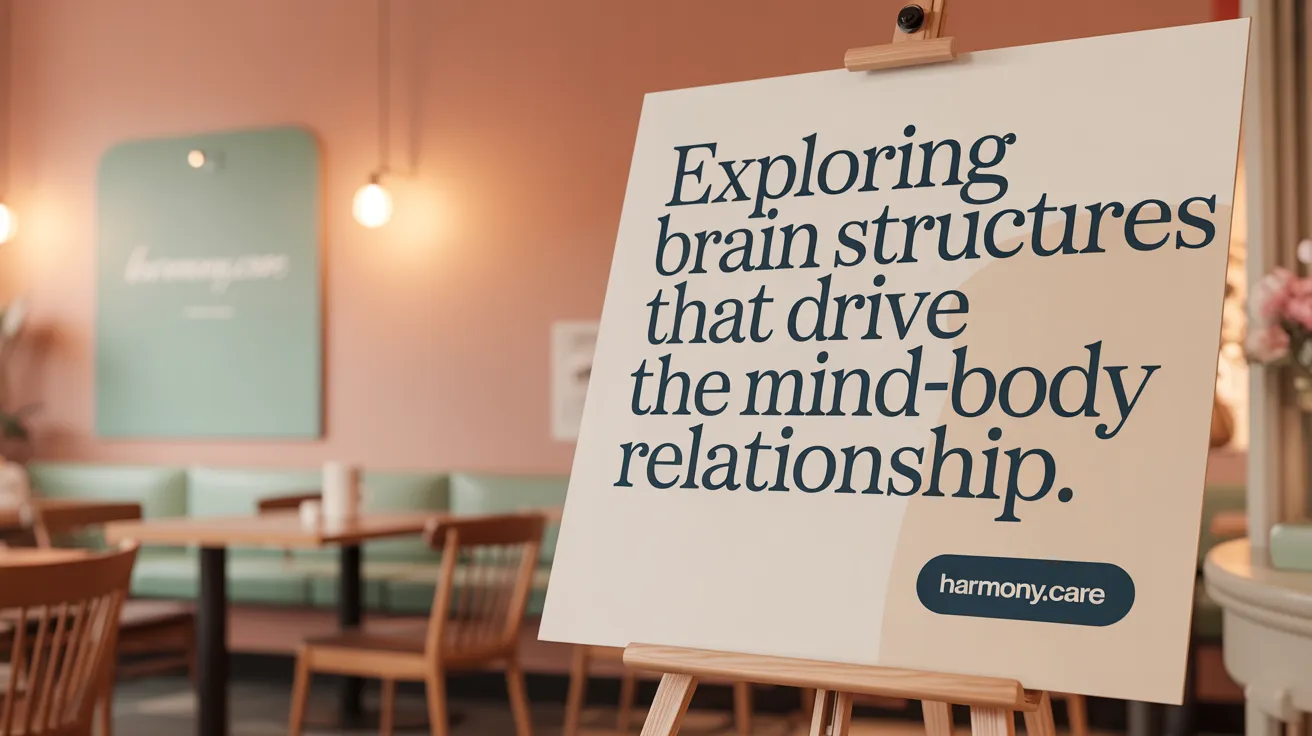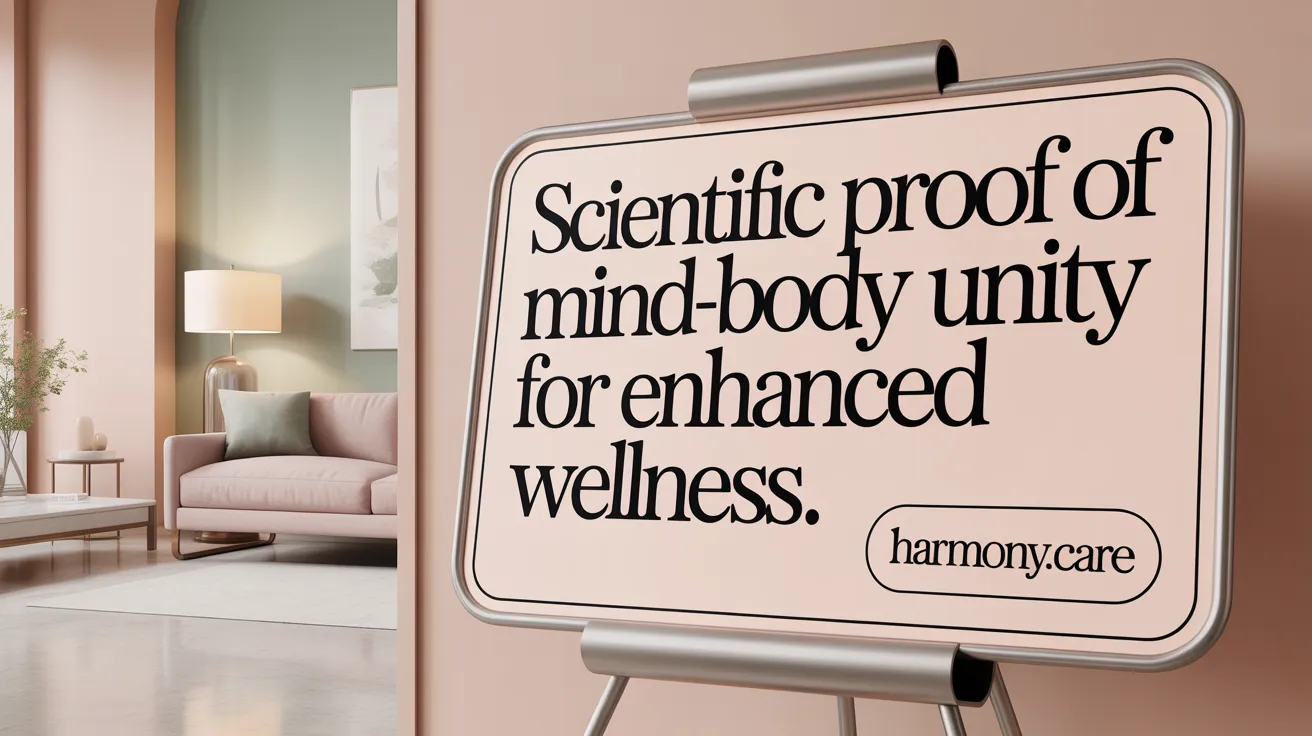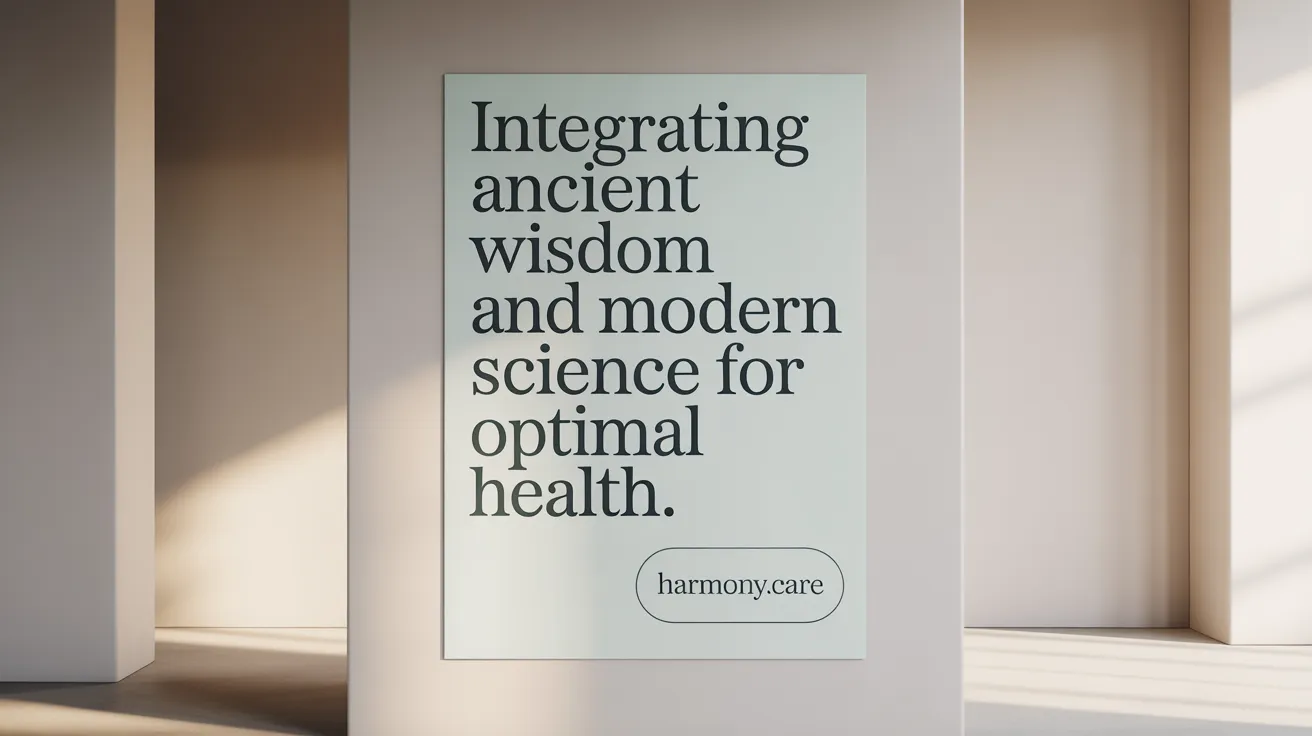Understanding the Intricate Dance of Mind and Body in Health
The mind-body connection has fascinated scientists, philosophers, and healers for centuries. At its core, this connection refers to the profound interplay between our thoughts, emotions, and physical health. Modern scientific research has unlocked many of the mechanisms underlying this relationship, offering transformative insights for holistic health care. This article explores the science behind the mind-body connection, tracing its historical roots, detailing its influence on mental and physical wellbeing, and examining evidence-based therapeutic strategies that enhance this vital link.
Scientific Foundations: Exploring the Mechanisms of the Mind-Body Connection

What are the scientific principles and mechanisms underlying the mind-body connection?
The scientific understanding of the mind-body relationship is rooted in intricate neurobiological and biochemical processes. Central to this are neural pathways, such as the autonomic nervous system and neuroendocrine axes, which serve as communication highways between the brain and body.
The autonomic nervous system regulates involuntary functions like heart rate, blood pressure, and digestion. It reacts to emotional states, activating responses like relaxation or stress. The neuroendocrine system, involving the hypothalamic-pituitary-adrenal (HPA) axis, releases hormones such as cortisol in response to stress, which in turn influences immune function and metabolic processes.
Various brain structures intricately participate in this regulation. The prefrontal cortex is involved in decision-making and emotional regulation. The anterior cingulate cortex plays a role in emotional processing and pain perception. The insular cortex contributes to awareness of visceral sensations and internal states. These regions work together to process psychological states and translate them into physiological responses.
Neurotransmitters and cytokines form biochemical mediators in this network. Neurotransmitters like serotonin and norepinephrine not only influence mood and cognition but also affect bodily functions such as sleep and appetite. Cytokines, signaling proteins released by immune cells, mediate inflammation and can be influenced by stress and psychological health.
Mind-body therapies—such as meditation, yoga, and biofeedback—are now understood to exert their benefits by affecting neural activity. They promote neuroplasticity, enhance vagal tone, and reduce stress-related inflammation. These practices can alter brain activity, decrease activity in stress-related regions, and improve physiological regulation.
Research with advanced neuroimaging techniques like fMRI and PET scans has shown that mental training can lead to measurable changes in brain structures and function. These changes translate into improved regulation of bodily systems, providing a scientific basis for the integrative practices that enhance health.
In summary, the complex interplay between neural pathways, brain regions, neurotransmitters, and cytokines underpins the mind-body connection. Scientific advances continue to unravel the bidirectional influence of mental states on physical health, highlighting the importance of holistic approaches to well-being.
Historical and Contemporary Perspectives on Mind-Body Interconnectedness
How has scientific understanding of the mind-body relationship evolved historically and in contemporary contexts?
The concept of a connection between the mind and body has deep historical roots, originating from ancient philosophers and traditional healing systems. Philosophers like Plato viewed the body as a vessel for the soul, emphasizing a separation of mental and physical realms, whereas Aristotle believed in the unity of body and soul, recognizing their interconnectedness.
In traditional Chinese medicine and Ayurveda, the mind and body have been seen as a unified system. These practices emphasize balance and harmony, with the mind affecting physical health through energy flows, meridians, and doshas. This holistic perspective has persisted for centuries and modern science is increasingly validating these ancient beliefs.
During the Renaissance, Western medicine began to focus more on the physical body, but dualism proposed by René Descartes in the 17th century introduced the idea of mind and body as separate entities. Despite this, early psychosomatic medicine in the 19th century started to explore how psychological factors influence physical health, laying groundwork for later scientific inquiry.
Today, advances in neuroscience, psychology, and immunology have transformed this understanding. Modern studies, including neuroimaging techniques like fMRI and PET scans, have mapped neural networks that reveal how mental processes are intertwined with physiological functions. Fields such as psychoneuroimmunology specifically examine how emotional and cognitive states influence immune responses and hormonal activity.
Recent discoveries of interconnected brain networks, such as the salience, default mode, and central executive networks, demonstrate physical structures that support the seamless integration of movement, cognition, and autonomic regulation. These findings provide empirical evidence that mental states like stress and emotions can directly impact bodily health.
In summary, scientific understanding has evolved from philosophical speculation to a multidisciplinary, evidence-based comprehension of the complex, bidirectional relationship between mind and body. This progression underscores the importance of cultivating mental health practices and lifestyle choices that support physical well-being, grounded in centuries of evolving knowledge.
Impact of the Mind-Body Connection on Mental, Emotional, and Physical Health

How does the mind-body connection influence mental, emotional, and physical health?
The mind-body link plays a vital role in shaping our overall health by illustrating how mental states and physical conditions are interconnected. This relationship is bidirectional, meaning that psychological stress and emotional distress can trigger physical responses, while physical illnesses can influence mental well-being.
When a person experiences stress or negative emotions, the body responds by releasing hormones such as cortisol and adrenaline. Over time, elevated cortisol levels can contribute to health problems like heart disease, weakened immunity, and digestive issues. Furthermore, stress increases pro-inflammatory cytokines, which promote inflammation and are linked to illnesses like diabetes, cancer, and cardiovascular disease.
Conversely, physical health challenges like chronic pain or illness can impact mental health. For example, individuals with diabetes are often more prone to depression, and those suffering from chronic pain frequently face anxiety. These interconnections highlight the importance of holistic health approaches that address both the mind and body.
Practices such as mindfulness meditation, yoga, and biofeedback are designed to strengthen this connection. They promote relaxation, improve emotional regulation, and can enhance immune function. Research shows that cultivating awareness of this relationship supports resilience, reduces stress, and improves overall well-being.
Understanding and nurturing the mind-body bond helps in managing stress, preventing illness, and fostering mental health. It underscores the value of comprehensive health strategies that recognize the influence of thoughts, feelings, and behaviors on physical health, ultimately leading to a better quality of life.
| Aspect | Effect | Supporting Details |
|---|---|---|
| Immune response | Stress suppresses immunity | Elevated cortisol weakens defenses |
| Hormonal changes | Stress hormones affect body functions | Cortisol impacts cardiovascular health |
| Mental health during illness | Chronic illness can cause depression | Diabetes linked to higher depression |
| Symptoms of imbalance | Headaches, fatigue, anxiety | Physical and emotional symptoms often co-present |
| Mind-body therapies | Reduce stress, improve health | Meditation, yoga, biofeedback |
Scientific advances and neuroimaging research continue to reveal the mechanisms underpinning these links, emphasizing the importance of integrating mental health practices into physical health management. Their combined use fosters resilience, emotional balance, and physical wellness, confirming the profound influence of the mind-body connection on holistic health.
Scientific Evidence Supporting Mind-Body Integration in Holistic Health
 Recent advances in neuroscience, psychoneuroimmunology, and clinical research have provided substantial evidence for the interconnectedness of the mind and body. Neuroimaging studies using tools like functional MRI (fMRI) and PET scans reveal that brain regions responsible for movement, thinking, and involuntary functions such as heartbeat and blood pressure are linked through complex networks. This neural integration supports the understanding that mental states can influence physiological processes.
Recent advances in neuroscience, psychoneuroimmunology, and clinical research have provided substantial evidence for the interconnectedness of the mind and body. Neuroimaging studies using tools like functional MRI (fMRI) and PET scans reveal that brain regions responsible for movement, thinking, and involuntary functions such as heartbeat and blood pressure are linked through complex networks. This neural integration supports the understanding that mental states can influence physiological processes.
Psychoneuroimmunology—the study of how emotions and mental states modulate immune function—has shown that stress and negative emotions can suppress immune responses, while positive feelings may enhance immunity. For instance, experiencing chronic mental stress increases cortisol levels, which are associated with heightened inflammation, contributing to conditions like heart disease, diabetes, and certain cancers.
Clinical research highlights the benefits of mind-body practices such as meditation, cognitive-behavioral therapy (CBT), yoga, and relaxation techniques. These interventions have been shown to reduce stress, improve mood, decrease pain, and improve sleep quality, demonstrating their role in supporting physical and mental health.
Furthermore, studies indicate that positive emotional states are linked to increased longevity and better health outcomes. For example, women with breast cancer participating in mindfulness programs experienced less pain and longer survival. Consistently, regular physical activity and healthy diets also contribute to emotional resilience and physical well-being.
In summary, scientific research confirms that our thoughts, feelings, and attitudes are intricately related to our biological functions. The integration of neuroimaging findings, immune studies, and clinical outcomes underscores the importance of adopting a holistic approach to health that recognizes the natural mind-body synergy.
Bridging Science and Tradition: Practices That Enhance the Mind-Body Link

What roles do scientific and traditional practices play in understanding and enhancing the mind-body link?
Scientific approaches to understanding the mind-body connection have advanced significantly through fields such as neuroscience and psychoneuroimmunology. These disciplines have uncovered how mental states influence physical health by detailing mechanisms involving hormones, neurotransmitters, neural circuits, and immune responses. Techniques like neurofeedback, functional neuroimaging, and biofeedback provide tangible, evidence-based insights into how brain activity correlates with emotional and physiological states.
Meanwhile, traditional healing systems like acupuncture, Qigong, Ayurveda, and practices rooted in Chinese medicine have long emphasized the close relationship between mental and physical health. Historically, these practices focus on restoring balance within the body’s energy systems and fostering harmony between mind and body.
Today, scientific research supports many traditional therapies. For example, studies have shown acupuncture can modulate neural pathways and reduce stress, while Qigong and yoga improve mood and lower blood pressure. These findings validate ancient wisdom, showing that traditional practices can positively influence physiological processes like stress hormone regulation and immune function.
Integrating modern scientific methods with traditional practices results in a holistic approach to health. This fusion allows healthcare providers to use validated therapies rooted in centuries-old traditions while enjoying the rigorous evidence provided by contemporary science. Such collaborations foster improved outcomes in stress reduction, pain management, and chronic disease treatment.
Practices like neurofeedback leverage real-time brain activity monitoring to teach self-regulation of neural processes, exemplifying how scientific principles are applied to enhance well-being. The scientific support for traditional therapies and the incorporation of mind-body practices into clinical settings demonstrate a meaningful convergence. Overall, blending science with tradition broadens our understanding of the mind-body link, offering new avenues for health strategies rooted in both evidence and cultural wisdom.
| Practice | Scientific Basis | Traditional Roots | Benefits |
|---|---|---|---|
| Acupuncture | Neural modulation, immune response | Balances energy flow (Qi) | Stress relief, pain reduction |
| Qigong | Mindfulness, neural regulation | Energy cultivation | Stress reduction, physical balance |
| Yoga | Neurotransmitter regulation, hormone balance | Union of mind and body | Mood improvement, lower blood pressure |
| Neurofeedback | Brain self-regulation, neural plasticity | N/A | Anxiety reduction, resilience |
Exploring the synergy between ancient practices and modern science enriches our capacity to promote mental and physical health. Such integrative approaches are increasingly recognized in clinical and complementary medicine, offering personalized, effective strategies for enhancing the mind-body connection.
Science-Based Techniques to Strengthen the Mind-Body Connection

What science-based strategies and methods can be used to strengthen the mind-body connection?
To enhance the bond between mind and body, scientists recommend several evidence-backed techniques that foster relaxation, self-awareness, and emotional resilience. Mindfulness meditation, for instance, involves paying focused attention to present sensations, thoughts, and feelings without judgment. Regular practice can significantly lower cortisol levels—the stress hormone—and reduce inflammation.
Deep breathing exercises are also highly effective. Techniques such as diaphragmatic breathing or the 'four, seven, eight' method—inhale for four counts, hold for seven, and exhale slowly for eight—trigger the parasympathetic nervous system, promoting relaxation and improving emotional regulation.
Mindful movement practices like yoga, Tai Chi, and Qigong combine physical postures, breathing, and meditation to enhance body awareness. These activities stimulate neural pathways that connect emotion regulation with physical health, leading to reduced stress and better immune function. Modern neuroimaging shows these practices influence brain regions involved in attention and emotion.
Additional methods like body scans, progressive muscle relaxation, and grounding exercises further improve self-awareness and emotional stability. Body scans involve methodically paying attention to each part of the body, detecting areas of tension or discomfort. Progressive muscle relaxation tightens and then relaxes muscle groups, releasing physical tension and calming the nervous system.
Grounding exercises, such as walking barefoot on natural surfaces or holding objects with comforting textures, help reconnect individuals with their physical environment, reducing anxiety and fostering mindfulness.
Health benefits from these techniques include lowered cortisol levels, decreased systemic inflammation, improved sleep quality, and better emotional regulation. These effects are supported by numerous studies showing improvements in chronic pain, anxiety, depression, and insomnia.
Incorporating these approaches into daily life can lead to a more resilient mind-body link, supporting overall health and well-being. Regular practice not only alleviates symptoms of mental health disorders but also promotes physical health, demonstrating the interconnectedness of our mental and bodily states.
Integrating Mind and Body for Holistic Wellness
The science behind the mind-body connection reveals a sophisticated, dynamic relationship where thoughts and emotions profoundly influence physical health, while bodily states affect mental and emotional wellbeing. From ancient philosophies to cutting-edge neuroscience, evidence consistently validates the bidirectional communication that shapes holistic health outcomes. Embracing both traditional wisdom and modern scientific practices enables us to harness therapeutic strategies that strengthen this vital connection. Ultimately, cultivating mindfulness, movement, and emotional regulation not only alleviates pain and stress but fosters resilience and vitality. As research advances, integrating mind-body knowledge offers transformative potential for personal health and healthcare paradigms worldwide.
References
- Mind-body connection: Ancient wisdom meets modern ...
- Understanding the Mind-Body Connection
- The Mind-Body Connection: A Comprehensive Guide to ...
- The Inner Healer: Mind-body Strategies for Health - PMC
- What is the Mind-Body Connection? - Dr. Lakshmi Menezes
- Understanding the Mind-Body Connection: A Holistic ...
- Sobering look at 'mind-body connection'
- The Mind–Body Connection: Understanding Their Link
- Exploring the Mind-Body Connection
- The Mind-Body Connection: A Science-Backed Guide to ...
